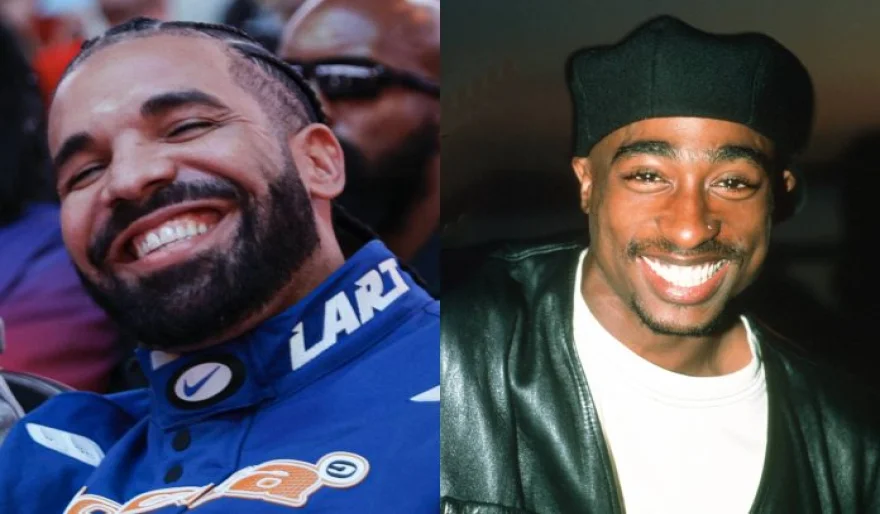Stay Ahead of the Curve
Latest AI news, expert analysis, bold opinions, and key trends — delivered to your inbox.
Drake faces legal action over diss track featuring AI Tupac.
6 min read In the hip-hop realm, conflicts are commonplace, but the latest spat takes an unexpected turn, integrating artificial intelligence. Drake's recent diss track targeting Kendrick Lamar introduced the voice of the late Tupac Shakur, reconstructed using AI. Consequently, Drake faces backlash, as Tupac's estate issues a cease-and-desist letter. April 25, 2024 07:10
The world of hip-hop is abuzz after Drake's latest diss track aimed at Kendrick Lamar took an unexpected turn. The song featured the voice of the legendary Tupac Shakur, but with a twist - Tupac's vocals were not recorded in a studio, but rather generated by artificial intelligence. This has landed Drake in hot water, with Tupac's estate threatening a lawsuit.
The Beef Gets High-Tech
Drake's decision to use an AI-generated Tupac sparked outrage from Tupac's estate. They issued a cease-and-desist letter, calling the use of Tupac's voice "a blatant abuse" of his legacy and a violation of their publicity rights. The estate claims they never consented to this use of Tupac's likeness.
A Legal Minefield: Who Owns AI?
This situation throws a spotlight on the murky legal landscape surrounding AI-generated content. Key questions remain unanswered:
- Who owns AI creations? Does the ownership belong to the creator of the AI model, the one prompting it, or the artist it emulates?
- Is AI-generated content copyright infringement? Or does it represent a new form of artistic expression?
The Fallout: Lawsuits, Deals, or Retreat?
Several possibilities lie ahead for this legal battle:
- Drake Backs Down: Faced with legal pressure, Drake might remove the song from all platforms.
- Lawyers Up!: The estate could take legal action against Drake, potentially setting a precedent for future AI-generated content.
- A Compromise Emerges: Perhaps Drake could alter the song or compensate the estate for using AI-Tupac.
AI in Music: A New Era of Ethical Dilemmas
This situation forces the music industry to confront some critical ethical questions:
- Do artists have a say in how AI replicates their work? Should their consent be required?
- How do we ensure responsible use of AI in music creation?
The Final Track: A Story Still Unfolding
The outcome of this legal battle will be closely watched. It could have a significant impact on how artists and estates handle AI-generated content moving forward. This might not be the last time we see AI shaking up the music industry, but one thing's for sure: the conversation about AI's role in music has just begun.



















 AI Agents
AI Agents